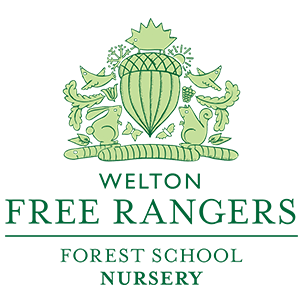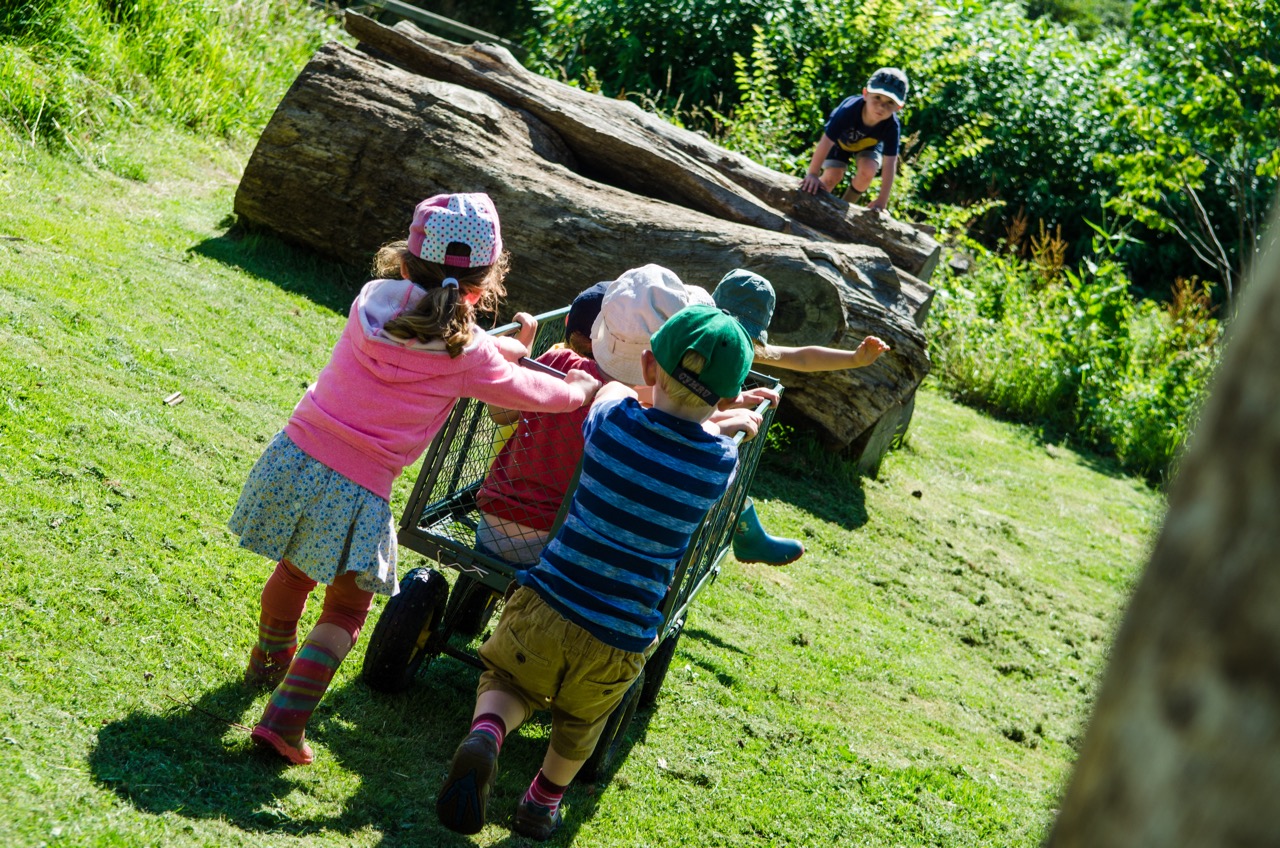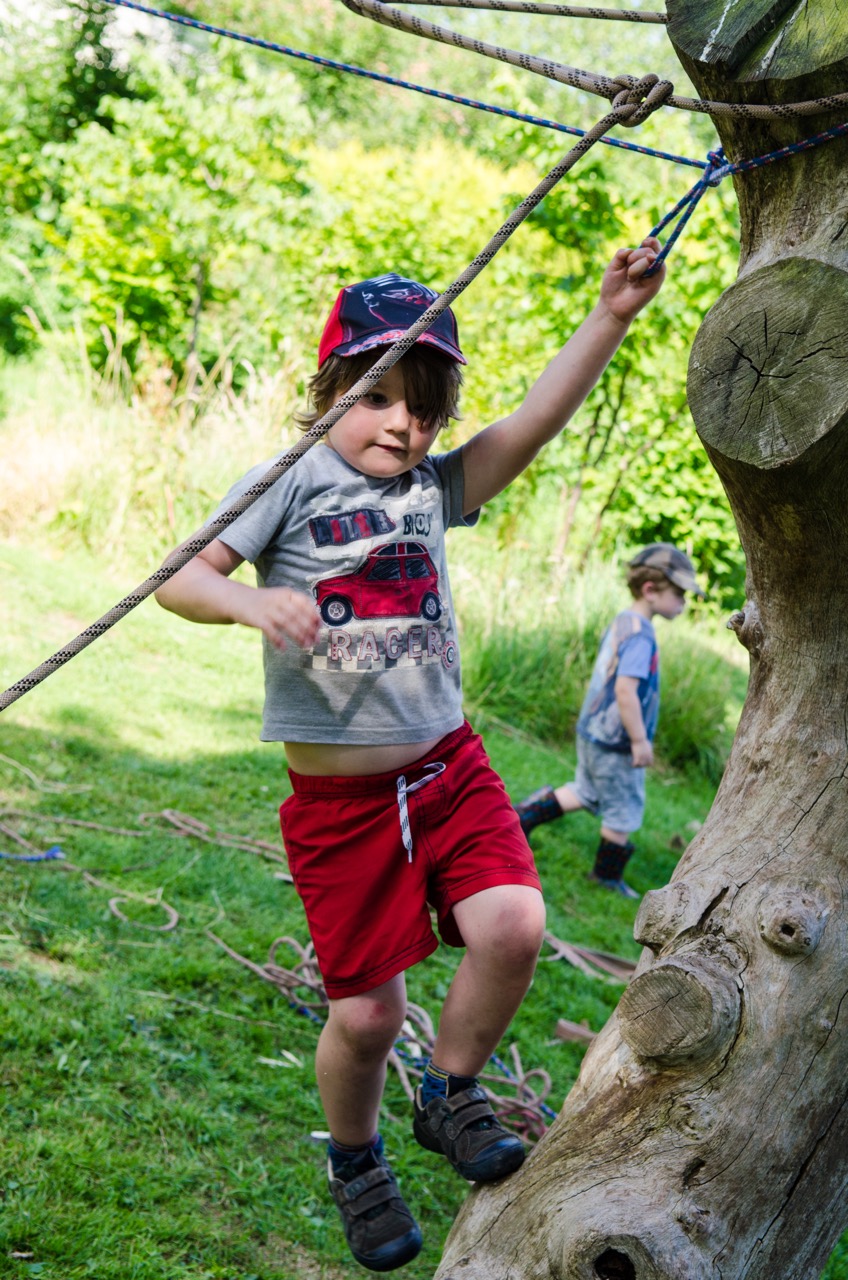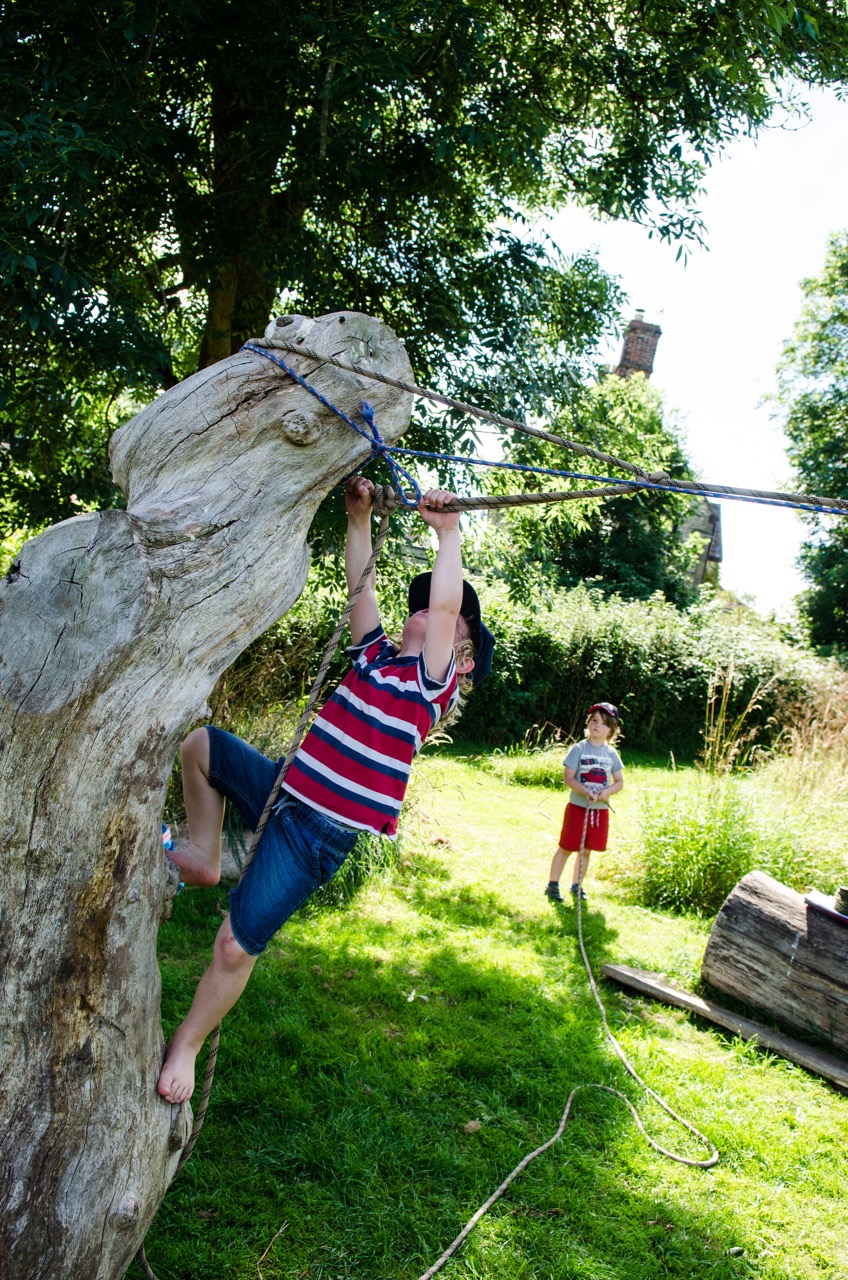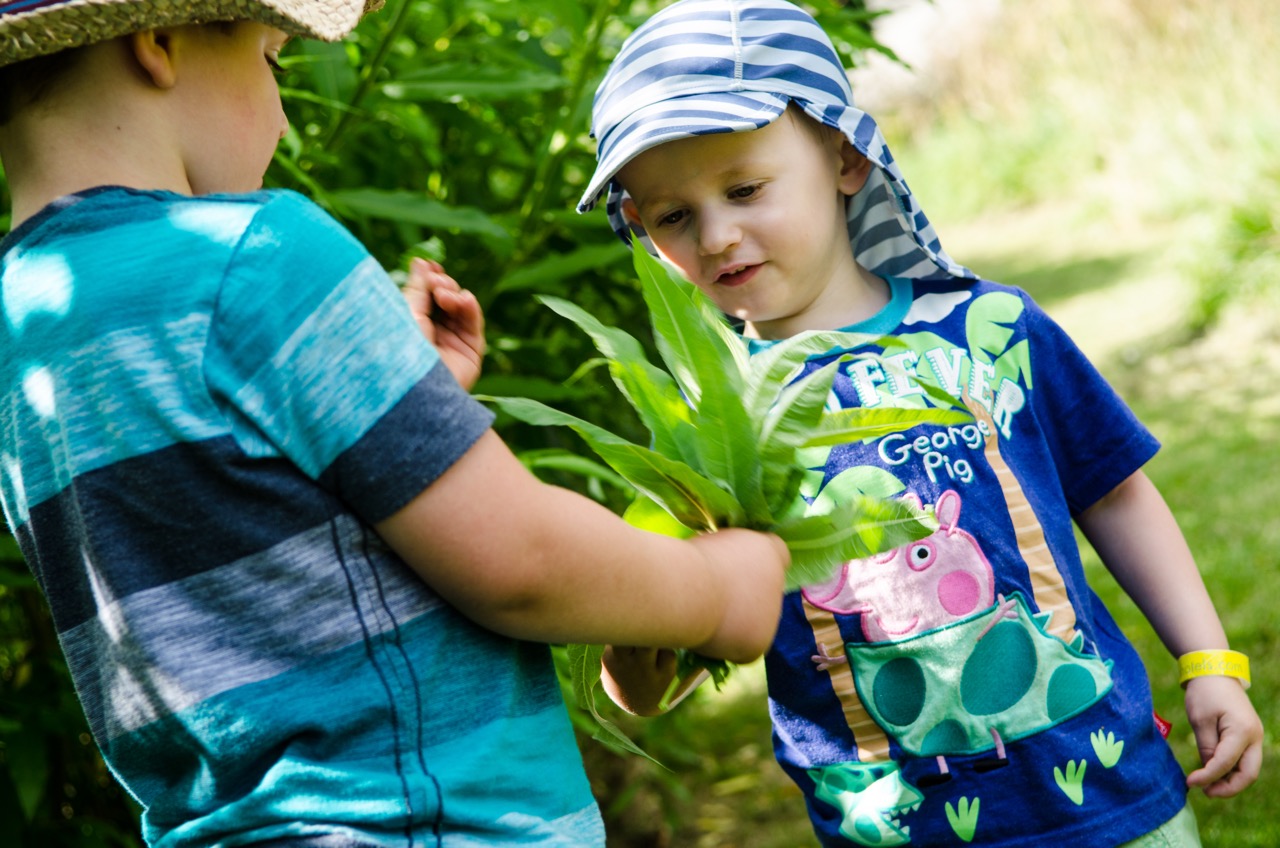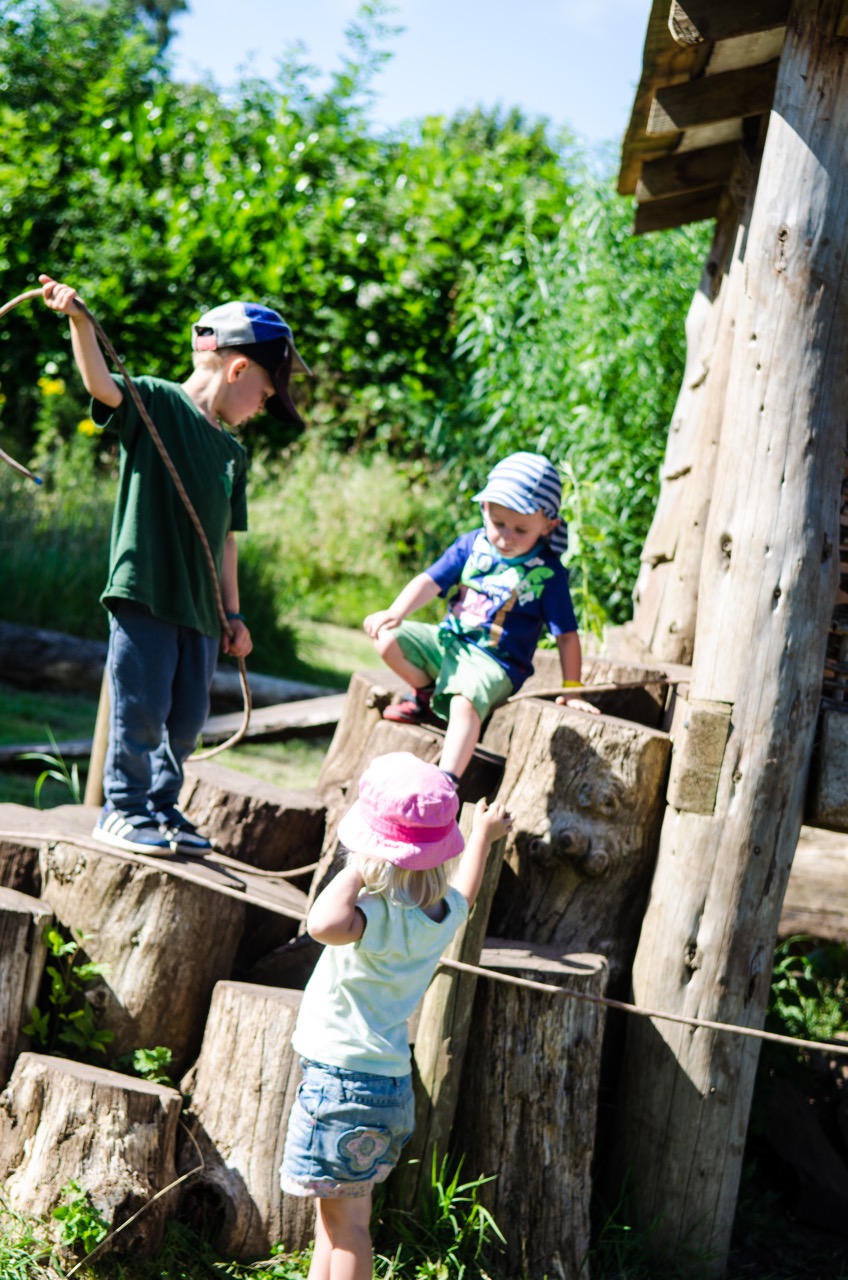Forest School offers a lot of freedom. Freedom to explore. Freedom to imagine and create. Freedom to move. Sure, they get these element elsewhere too, but being able to do this throughout the outdoors, largely unfettered by the nuisance grownups sticking their oars in, makes their learning and development meaningful and memorable.
Recently, the focus for Forest School looked at why and when we help each other when we play. Before a session starts I'm usually asked the question: "What are we doing today?" My answer stays resolutely the same: "That's up to you." I could tell the children beforehand but I would much rather the activity remain open to be explored and not dictated. All that's stated is I would like them to help their friends today. Offer them a hand if they think they need it. Now, play is a VAST topic. It's an incredibly important one especially for those who work in Early Years as play makes a large part of the early development of children. The benefits for a child's development through quality play, especially outdoors are terrific (although I am biased), and analysing it helps we adults to better understand your child's needs and holistic growth. Examining the complexity of children's play is a huge undertaking and I could write pages and pages of interesting observations taking place during just one Forest School session, so I focussed my observations on how we play together; in pedagogical terms 'co-operative play'.
Because of the complexity of play some have attempted to rationalise it alongside the development and growth of children, most notably Mildred Parten who developed her '6 Stages of Play' theory (1929). The sixth stage detailed the aforementioned 'co-operative play' and is the pinnacle of Parten's theory. Here, everybody is a winner. The play is socially organised, mutually beneficial and reciprocated, and can usually only occur if the "players" have developed solid social interaction skills so we tend to see this mainly in our pre-schoolers. That's not to say older children may display traits of the the more juvenile non-social and solitary stages of play from time to time for example if a child is purely focussed on building a Star Destroyer out of lego (and I'm pretty sure the popularity of mobile phones is reducing some adults back to this stage too!) but Parten's theory, as well as other educationalists, allows for a better picture of the level of social development of a child.
To aid in the development of these latter social play stages, I provided the children with open-ended resources and equipment that they'd used over the course of the previous weeks (as detailed in my previous blog post) to invoke a level of social interaction through the need of assistance. Most of these resources could be used autonomously too, but in order for them to be utilised to their maximum, a second pair of hands would be need, therefore pushing the children towards more socially based play scenarios.
The children didn't disappoint (like they would ever...) The most popular resource, and the most interesting to observe, were the trolleys. The children would ask: Can we have a ride in them? to which I would reply: I don't know? Can you? A few would climb in and sit their for a while, releasing the catches and lowering the sides before realising it's not much fun sitting in a trolley on their own. Can you pull me along? Ah! This is much more fun! But wait... I want to have a go now. You have to pull me. Here's where turn taking comes into play and the development of social dynamics and interaction. Most groups managed well to organise themselves, with a few children taking more than their fair share of turns, but it's all good learning. The trolleys were also used for transportation schemas, as natural resources were collected and hoarded in various locations. To develop further social interaction here, I suggested the persons being pulled dictated direction and would give the pushers/pullers instructions, although I feel I may have promoted the "back-seat driver" tendency, so apologies if any of the children have been commenting on your driving on your way home as a result!
A pallet swing was also created and again turns were taken. The person riding would have to dictate the desired velocity to one or (ideally) two pullers who powered the swings. When there were two 'pullers' the social interaction doubled, as not only did they have to listen to those riding on the swing, but also to each other as they tried to stay in-sync, not to mention keeping an eye on the momentum of the swing to avoid being yanked forward! So this activity not only developed the social attributes of the children but also their hand/eye co-ordination, strength, a basic understanding of physics and problem solving. Starting the swing was only the beginning. Stopping it was the harder challenge...
When resources were exhausted, most then turned to role-play and began stretching legs. The site at Free Rangers has grown up and out with all the warm and wet weather recently offering plenty of space to run and hide and create their own play in their own spaces, particularly, "role-play". To develop role-play strategies, children must first be able to develop symbolic play and their imaginations. Toddlers pretend spoons are horses and sticks are wands largely on their own. As they develop linguistically and socially, then they begin to assign 'roles' to themselves as their play becomes "dramatic play". When others begin to join in then it becomes socio-dramatic play; the most advanced form of symbolic play.
Our pre-schoolers adopted ropes, pine cones and sticks, chasing good and baddies around the paddock, locking them away in the tree house (only for them to escape straight away!) This kind of play is a great way children can cooperate each other. Whether this is helping to achieve a shared goal of catching the illusive baddy, or through subconsciously developing social acceptance for children who might not necessarily play together, or even peer mentoring friends to over come challenges. It's great to see.
Phew. So much in such a short week! As always thanks for reading please leave a comment to share your experiences!
Hope you've all had a great weekend!
